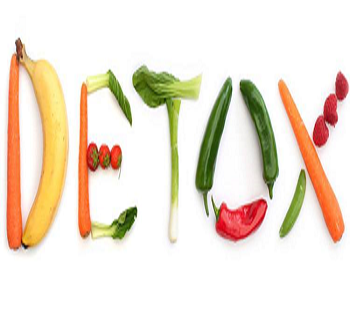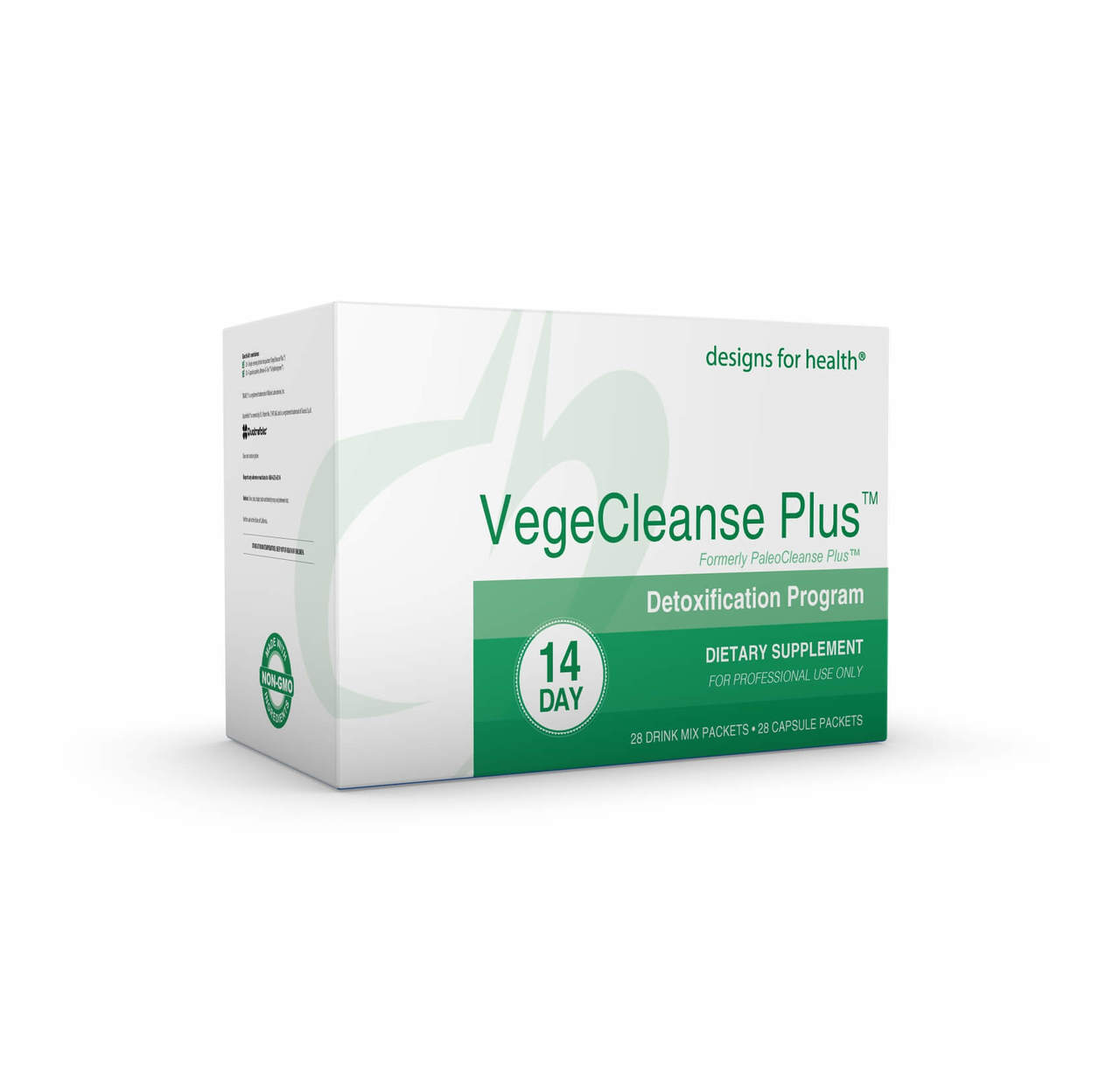It’s true that the food we eat and the environment we live in contain many different toxins. Detoxification, the body’s natural process of filtering and eliminating toxins, is a topic that comes up quite a bit in the worlds of health and wellness recently, but many people don’t know much about how it works or what it can really do for them in understandable terms. I’d like to share with you the science behind detoxification, what detoxification can do for you, and what it means to your health and longevity.
What is Detoxification?
Detoxification is simply the body’s natural process of removing toxic substances from the body and blood. The idea of cleansing one’s body of toxins has been practiced since the ancient Egyptians and Greeks, who believed that food remnants could linger in the body and produce harmful toxins. Their guess wasn’t too far off, especially since they had the idea thousands of years ago, but we now have access to science that tells us exactly how toxins accumulate, what we can do to remove them, and how this helps us.
One misconception about body detoxification is that it is not necessary because the body detoxifies itself. The body actually does detoxify itself; the problem is that its abilities to remove toxins are often overloaded by the sheer volume of toxins we encounter. According to Pure Earth, a non-profit pollution cleanup organization, toxic pollution affects more than 200 million people worldwide and the U.S. Environmental Protection Agency (EPA) performed a study that said about 6 billion pounds of pollutants are released into the environment each year.
As if that wasn’t enough, researchers are now concerned with the tremendous amount of xenobiotics (a fancy word for pharmaceutical medications) that are released into our water supply. This happens indirectly when we pass the ingredients through our waste, or by simply disposing old medications into our sewage treatment plants that were never designed to filter these types of complex chemicals out of the water supply. Ultimately, these chemicals proceed into the rivers and eventually end up in the food chain.
How Cells Actually Become Damaged
Physiologically, cells become damaged through the process of oxidation, and oxidation leads to the creation of harmful free radicals. Why is this concerning? When a cell is damaged by free radicals and not treated and repaired, that cell’s structural integrity can degrade and the DNA code can be altered. Examples of this process can include deterioration of the eye lens or nerve cells in the brain, inflammation within your joints, and even certain types of cancers. The body utilizes its natural antioxidants and enzymes to neutralize free radicals and repair damage, but these natural defenses can be overwhelmed.
How the Body Keeps Itself Clean
The liver, skin, and gut are the body’s primary defense systems against toxins as they protect, filter, and eliminate toxic substances from the body. Ultimately, the goal is to keep these chemicals from entering the blood stream. Other major organs help out, like the kidneys that clear toxins in the form of urine and the colon’s chemical-producing bacteria that helps flush out toxins, but the liver is crucial to the body’s natural abilities to detoxify.
The liver has two phases of detoxification, called Phase I and Phase II. Phase I softens the toxins by starting a process of converting the toxins from fat soluble to water soluble. In Phase II, the liver continues to process and transform the toxins into water soluble byproducts so that they are more easily flushed out when filtered and eliminated through the kidneys.
Do I Really Need to Detox?
In an ideal world, we would consume relatively few toxins (like our ancestors) and our body’s innate detoxification processes would remove them for us and we would be free of many chronic diseases and conditions. However, this is not the case in the real world. Some of you may think, “What about me? I doubt I have a bunch of toxins in my body. I feel fine!” But you would be surprised at how many sources of toxins surround us at all times and how hard it is to avoid them.
For instance, if you eat farm-raised salmon or tilapia, it may be exposing you to toxic Polychlorinated Biphenyls (PCBs) that can cause cancer and remain in your body fat for years. A 2010 California lawsuit claimed that certain fish oil brands contained PCBs, so always be sure to buy trustworthy fish oils. Eating non-organic food exposes you to another major toxin – pesticides. Pesticides are troublingly common in our environment, with the EPA estimating that 877 million pounds of pesticides were used in the U.S. in 2007 alone. Pesticides can put us in danger of developing neurologic, reproductive, and genotoxic (genetic) health concerns and the Stockholm Convention on Persistent Organic Pollutants says that 9 of the 12 most dangerous and persistent chemicals in existence are pesticides.
Common signs of toxic buildup include a sense of “poor health,” nausea, “brain fog” and mental confusion, irregular bowel movements, bloating, irritability, difficulty sleeping, puffy eyes, dull skin, fatigue, and mood swings. A detoxification program, performed in the right way, can help your body to expel the excess toxins that overload your cells and organs and lead to these symptoms and many others. Here are what I consider to be the top 5 benefits of putting your body through a detoxification regimen.
Boost your Energy
Exposure to toxins over time can strain the liver. This excess workload can lead to feelings of fatigue. A study published in Toxicologic Pathology determined that chronic exposure to certain environmental toxins can significantly increase the risk of liver disease. Major organs like the liver have important roles to play in your biological functions other than detoxification and when your organs are “sick” or overloaded from toxins, your overall health and energy levels suffer.
Fortunately, a detoxification program provides optimal nutritional support to help the liver heal and cleanse itself. Detoxification also makes you feel more energetic since you are typically cutting out things like sugar, caffeine, trans fat, and saturated fat. Remember that a detoxification program won’t boost your energy levels through the roof; it simply helps restore your body’s normal function. This alone can make a world of difference!
Weight Loss
Another misconception about detoxification is that it is primarily about losing weight. As you’ve learned, detoxification is about supporting the body’s natural ability to remove unwanted toxins. But, as an added benefit, most people do find that they lose weight during (and often after) a detoxification program. A study from the University of California – Irvine found that chemical pollutants and toxins promote obesity by altering homeostatic metabolic set-points and disrupting appetite controls.
Many of those who have tried detoxification programs claim that the “clean” feeling they have while detoxing helps them to re-evaluate their day-to-day food and exercise choices even after they stop with the detox.
Immune System
When toxins infiltrate your body and lead to the development of free radicals, it can have an adverse effect on the immune system. Free radicals not only harm cells in the body, but also bind to the immune system information pathways called cytokines. When free radicals bind to cytokines, it damages these pathways and leads to reduced immune system function. In the book The Rebellious Body, by Janice Wittenberg, detoxification is defined as “activities involved in assisting the body in the mobilization and excretion of toxins, with the net effect of reducing the burden to the immune system, thereby allowing greater health.”
Based on what we’ve learned about detoxification, this makes sense. Researchers have found that detoxified organs can better absorb crucial immune-supporting nutrients like vitamin C since they are not working overtime to filter out the overload of toxins, leaving you with a better-functioning immune system. Just like your major organs, the immune system has responsibilities other than just detoxification. When it is freed up to perform those other functions, it is more effective in warding off sickness and keeping you healthy.
Think Clearer
Another organ that benefits greatly from having fewer toxins to deal with is the most crucial of all – the brain. Dr. David Bellinger, at Harvard Medical School, estimated in his recent study that Americans have collectively forfeited 41 million IQ points due to exposure to toxins like lead, mercury, and organophosphate pesticides. Researchers at the University of Calgary also found a link between toxins and harm to the brain when they determined that exposure to heavy metals like mercury can alter the cell membrane structure of developing neurons.
Fortunately, it’s never too late to start cleansing your body. Detoxifying the brain has the potential to boost memory, concentration and learning. A study at Duke University Medical Center found that toxins like pesticides are possibly associated with Alzheimer’s disease and other “dirty brain” disorders. Toxins inhibit the release of acetylcholine, a chemical important for memory. By removing pesticides and other toxins from the brain, your brain’s proper chemical balance can be restored and you may find a noticeable change in the clarity of your thinking.
Anti-Aging
According to a study published in Trends in Molecular Medicine, about 70% of what ages us is our lifelong intake of toxins. The mitochondria in the body’s cells, responsible for energy-production and metabolic processes that keep you feeling young, are damaged when exposed to toxins. Many academics and researchers theorize that the aging process is directly related to free radical levels present in the body. For instance, free radical activity in skin collagen accelerates skin aging, while a study published in Clinics in Geriatric Medicine says free radicals are also responsible for the functional decline in aged brains.
Through detoxification, you can reduce your toxin level, which leads to fewer free radicals, which results in less damage done to crucial organs. They say that age is only a number and, when you free yourself from toxic burden, the saying is truer than ever before.
Try a little “spring cleaning”
Now that you know more about detoxification and how it can help your wellbeing, I hope you will see what a detoxification program can do for you. It takes time, effort, and a little financial investment, but the feeling of a clean body and mind is invaluable. Those who take the time to detoxify their bodies usually find that they build positive “momentum” in making healthier choices for their lives.
I encourage you to consider a detoxification program, such as the VegeCleanse Plus Detox Programs by Designs for Health, if you’d like to experience firsthand what a detox diet can do for you. While a basic detox diet is one that may be as simple as eating fruits and vegetables, the benefit of a quality, comprehensive program like this one is that it is structured, researched, and it provides you with all of the nutritional supplementation that your body needs when going through a process like this.
The foundation for this program is based on supporting the phase I and phase II detoxification processes of the liver while also providing general nutritional support. Everything is consolidated into packets to make the program easy to follow and to ensure that people on the program do not miss any necessary nutrients. To learn more about how the VegeCleanse 14 or 21 day detoxification programs can help you to purify your body and feel cleaner than ever before, click here. You will find additional info about each product included in the program.
I hope this article helps you start a new, cleaner chapter in your life. If you have any questions about the products or suggestions discussed here, or need help placing your order, our customer service team is standing by and ready to assist you in any way they can. You can reach them by phone at (888) 460-3091 or you can email them at: customerservice@oakwaynaturals.com.
Yours in health,













Comments are closed.